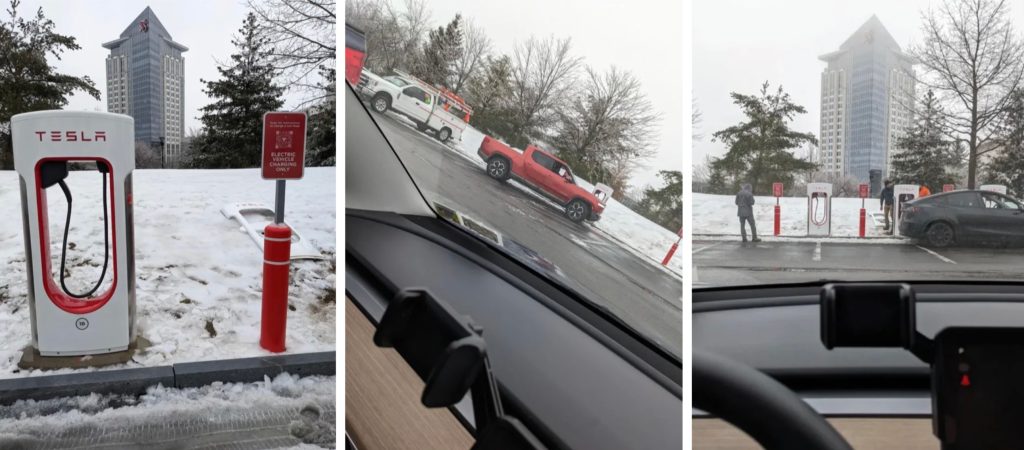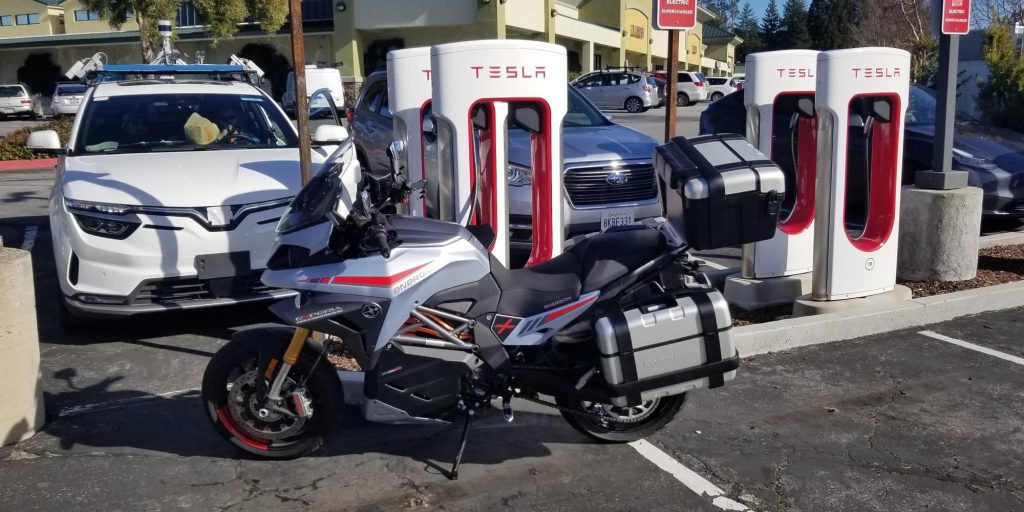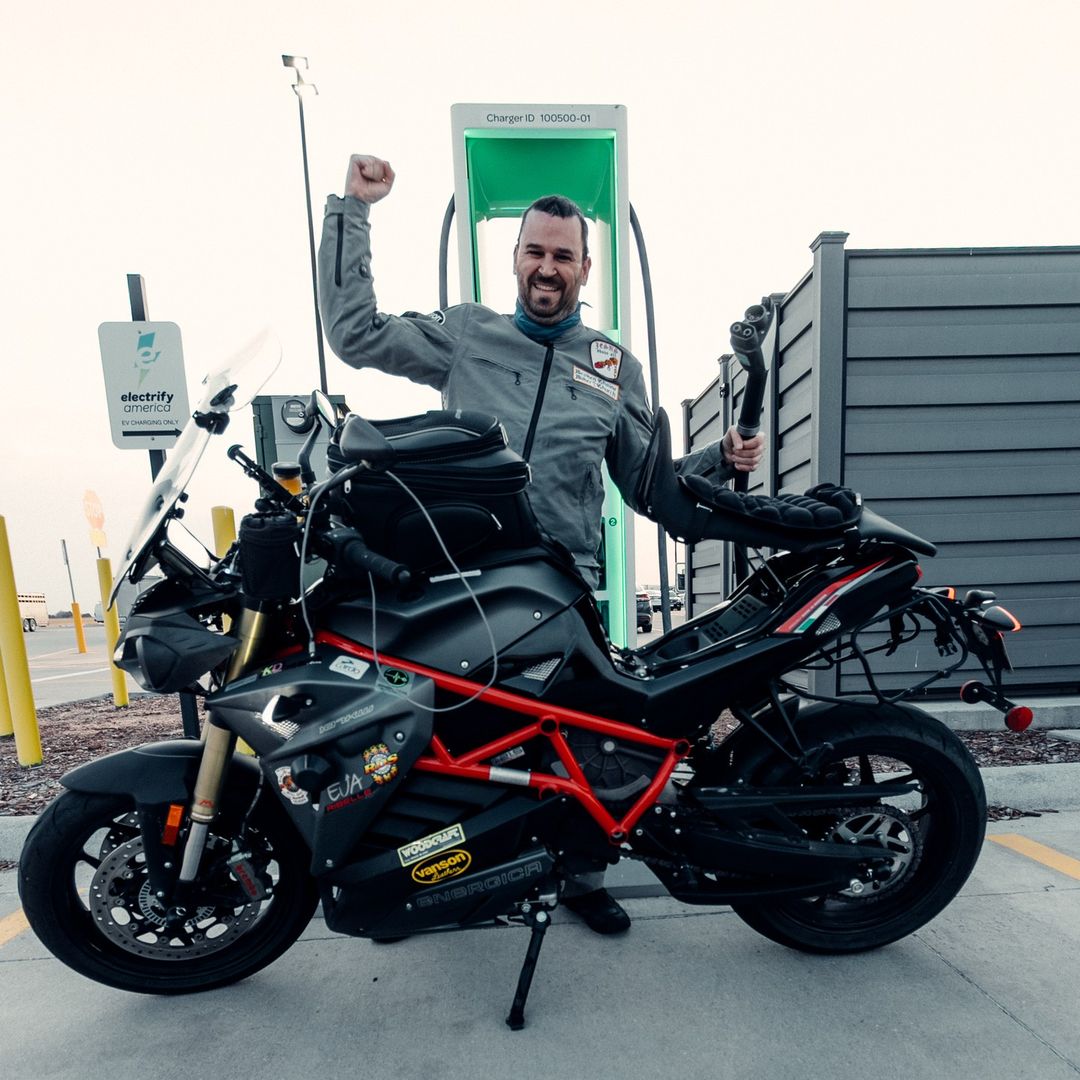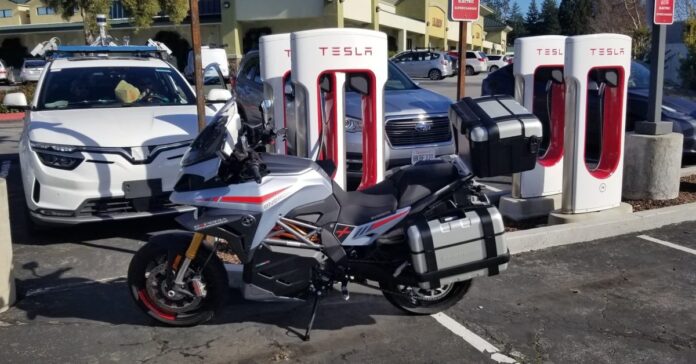When Tesla announced that it would begin opening up its Supercharger stations in the US for non-Tesla EVs, we expected to see a wide range of electric cars flood the fast charging stations. And that has certainly happened in the last few days since the Superchargers were opened up to the masses. But it’s not just electric cars that are taking advantage of the new fast charger access. Now electric motorcycles are getting the good juice, too.
Several of Tesla’s Superchargers have been updated with a new Magic Dock, which is a CCS connector designed to allow charging by non-Tesla EVs.
It was a necessary move in the US because unlike in Europe, where Tesla already uses the CCS connector, US-based Tesla vehicles use the company’s own proprietary charging connector.
Like many others in the last few days, Electrek has already tested the Magic Dock by charging up a Chevy Bolt electric vehicle. But a less common site at Tesla Supercharger stations are electric two-wheelers.

Few electric motorcycles in the US are equipped for DC fast charging. The largest electric motorcycle manufacturer, Zero Motorcycles, has eschewed fast charging and instead focused on offering higher power charging modules or extra batteries, both of which can be installed on its motorcycles in place of the glove box (essentially the gas tank location on a combustion-engine motorcycle).
But both Energica and LiveWire have adopted DC fast charging with a CCS connector, allowing their electric motorcycles to fill the majority of their electric “tank” in around half an hour.
Several Energica electric motorcycles have been spotted charging up at Tesla Superchargers, including the new Energica Experia electric touring bike seen below and shared on Reddit.

According to the Experia’s owner, he was only able to charge at around 7 kW, which is around a third of the rate he normally gets at a typical DC fast charging station. He explained that the discrepancy could be related to the Supercharger not yet being able to identify the electric motorcycle and its ability to draw higher power.
The Experia is already a long range electric motorcycle, touting a city range of 420 km (261 miles) and a highway range of 209 km (130 miles). But fast charging makes it capable of using that long range for touring – an area that has become the Achilles heel of electric motorcycles.
The all-electric Experia uses a large 22.5 kWh maximum-rated battery (19.6 kWh usable) to reach such impressive ranges, and combines that battery with DC Fast Charging capability along with levels 1 and 2 charging (home wall charging and EVSE-style public charging stations).
Motorcycles (or more accurately, motorcycle riders’ bodies) can’t compete with the aerodynamic efficiency of cars, and thus have significantly more drag at highway speeds than electric cars like Teslas. They also have much less space for battery packs than electric cars, meaning that a highway range of 209 km (130 miles) puts the Experia near the top of the pack for long range electric motorcycles.
DC fast charging has allowed Energica’s bike to become competent tourers, with riders setting records for cross country journeys thanks to that fast charging ability. Iron Butts, an achievement earned by traveling 1,000 miles (1,600 km) in a day on a motorcycle, are now readily obtainable on electric motorcycles.

Other Energica electric motorcycles have also been spotted making use of Tesla Superchargers, including an Energica Ego superbike whose owner rode 200 miles (320 km) to reach the Supercharger just for the experience.


